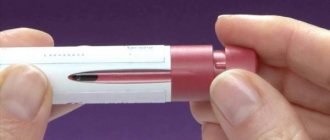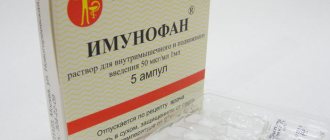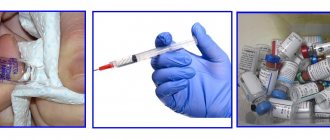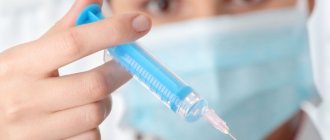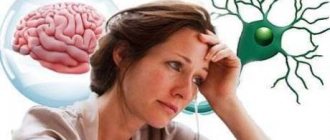When there is absolutely no strength left to continue the fight against absent-mindedness, fatigue or reluctance to get down to work, only one thing comes to mind - caffeine. It is this substance that has the unique ability to restore strength, invigorate, and lift your spirits in just a couple of minutes. However, few people think that caffeine-sodium benzoate is quite a dangerous drug, especially for a weakened and exhausted body. This medicine must be taken correctly, using certain dosages. Only if this condition is met can you improve your own well-being and not harm your health.
What is Caffeine Sodium Benzoate
These tablets are an aphrodisiac and psychostimulant derived from methylxanthine. The action of caffeine benzoate is to inhibit PDEs (phosphodiesterase enzymes) in the heart, organs, nervous system and adipose tissue. When consumed in large doses, the substance can accumulate in the body in the form of cGMP, cAMP (adrenaline derivatives). The drug is synthetic, based on caffeine extracted from coffee seeds and tea leaves.
Caffeine is produced in tablets of 100 mg, in a package of 6-10 pieces. A small dosage of the drug has a stimulating effect on the central nervous system, but in case of an overdose, on the contrary, it depresses it. After taking caffeine, a person’s breathing becomes faster and deeper, blood vessels dilate, and the tone of the cerebral arteries increases. This drug has the following effects on the human body:
- increases concentration;
- activates fat burning, therefore suitable for weight loss;
- improves mood;
- increases mental excitability;
- stimulates the release of adrenaline into the blood;
- increases muscle activity in athletes, maintains the potential of muscle membranes, and participates in calcium metabolism.
Side effects
The harm of sodium benzoate with caffeine is that the drug, if intolerant or non-compliance with medical recommendations for use, can cause anxiety, restlessness, psychomotor agitation, headaches, epileptic seizures, dizziness, tachypnea, insomnia, exacerbation of peptic ulcers, nausea, vomiting, nasal congestion , drug dependence, tachycardia, increased blood pressure.
Sudden withdrawal of caffeine can lead to muscle tension, inhibition of the nervous system, increased fatigue, and drowsiness.
An overdose of the drug is possible, which is expressed by increased anxiety, abdominal pain, confusion, dehydration, arrhythmia, hyperthermia, headaches, agitation, frequent urination, trembling, muscle twitching, nausea, vomiting with blood, convulsions, ringing in the ears.
The harm of sodium benzoate with caffeine appears even when it is consumed at a dose of more than 300 mg/day: headaches, tremors, confusion, extrasystole, and anxiety may appear.
Overdose is treated by gastric lavage, laxatives, and activated charcoal. If the patient has hemorrhagic gastritis, he is administered antacid medications and the stomach is washed with a 0.9% sodium chloride solution, and artificial ventilation is maintained. If convulsions occur during an overdose, diazepam, phenytoin, phenobarbital are administered intravenously, and water-electrolyte balance is maintained.
Caffeine sodium benzoate: instructions for use
You can take caffeine tablets regardless of your meal during the day. It is not recommended to use them immediately before bed because this will make it difficult to fall asleep. The manufacturer recommends using the following dosage options:
- For cheerfulness and increased performance, adults and adolescents will need 2-3 doses of 50-100 mg. Children do not need the drug in these cases.
- To eliminate headaches, people over 12 need to drink 50-100 mg of the drug 2 times a day for 3 days.
- To increase blood pressure, children over 12 years of age and adults are recommended to drink 100 mg of caffeine tablets three times a day.
For any reason for taking the drug, you should not exceed a single dose of caffeine of 300 mg and a daily dose of 1000 mg. In cases of overdose, a person may experience the following symptoms:
- nausea;
- dizziness;
- anxiety, tremor;
- cardiopalmus;
- confusion.
- October news about pensions
- How to protect your windshield from dirt before a long journey
- 5 recipes for tomatoes in gelatin for the winter
How to take pills to raise blood pressure
Caffeine tablets are prescribed for minor and irregular deviations in blood pressure (blood pressure) to normalize the indicator. The drug is a strong psychostimulant, so it should be taken strictly in the prescribed doses. The active substance is able to influence vascular and cardiac receptors, which allows you to quickly raise blood pressure to normal. To get this effect, you need to take 50-100 mg of caffeine tablets 3 times a day for several weeks.
Who should not take caffeine tablets?
You need to use the product carefully so as not to harm your body and get a negative effect instead of a positive one. Caffeine is contraindicated for people who:
- serious diseases of the cardiovascular system;
- paroxysmal tachycardia;
- allergy or intolerance to caffeine;
- sleep disorders;
- anxiety disorders;
- age up to 12 years;
- increased blood pressure.
Older people who are prone to seizures, spasms or convulsions, epilepsy and eye diseases should be careful with this drug. During pregnancy and breastfeeding, tablets can only be taken as prescribed by a doctor. If you combine oral contraceptives with caffeine, it will have less activity, accumulate in the blood, and be slowly eliminated by the liver.
Effect of caffeine on the body
How this stimulator works was studied by I.P. Pavlov. He was able to establish that the substance affects the excitation process that occurs in the cerebral cortex.
Subject to reasonable dosing, it acts as follows:
- Strengthens positive conditioned reflexes (this includes the speed of reaction, the ability to remember and concentrate; read about the action of theine as a neuroenhancer here);
- Reduces drowsiness and fatigue, gives vigor;
- Accelerates heart rate;
- Increases blood pressure (slightly, because theine is taken with slightly reduced blood pressure; if we are talking about the patient’s collapsed or shock state, the increase will be significant);
- Weakens the effect of sleeping pills, some painkillers and potent drugs;
- Stimulates the production of the hormone adrenaline (among other things, under its influence fats are broken down, which is why guaranine is often taken for weight loss, and immediately before training);
- Activates the production of gastric juice (so drinking coffee on an empty stomach is a bad idea);
- Promotes the expansion of blood vessels in the body;
- Stimulates the functioning of the urinary system.
Interesting! In rare cases, depending on the type of nervous system, mateine may not excite, but inhibit the processes of higher nervous activity (that is, have the exact opposite effect to the expected one).
Is caffeine effective for weight loss?
According to people's reviews, the dosage used to stimulate the nervous system is not enough to start the fat burning process. Caffeine in diet pills is required in large quantities. Overweight athletes consume 10-20 mg of the substance per kilogram of body weight before training. It is believed that this is the only way to speed up metabolic processes and heart function to the desired level. You should take the tablet 30 minutes before class. Doctors recommend starting to drink caffeine sodium benzoate for weight loss at 2 mg/kg and gradually increasing the dosage.
- Exercises in the pool for weight loss
- Until what time is meter checking cancelled?
- What does freezing the funded portion of a pension mean for pensioners?
Basic information[edit | edit code]
Yuzhakov Anton Kofein
Caffeine sodium benzoate
- Registration number:
LS-001544 - Trade name:
Caffeine sodium benzoate. - International nonproprietary name or generic name:
caffeine. - Dosage form:
tablets. - Pharmacotherapeutic group:
psychostimulant.
Composition per 1 tablet:
Active substance: caffeine sodium benzoate - 100 mg; excipients: potato starch - 15.77 mg, calcium stearate - 0.23 mg.
Expert reviews[edit | edit code]
White tablets of flat-cylindrical shape with a chamfer and a score. The drug is freely available in pharmacies, sometimes they ask for a prescription. This is the only available form in Russia (citrate is practically never found). It should be remembered that this is actually a mixture of two different substances: caffeine and sodium benzoate, in equal quantities. Thus, one tablet contains only 40 mg of caffeine, and 60 (figures are derived based on the composition of caffeine in ampoules, per ampoule 80 mg of caffeine and 120 mg of benzoate) mg of sodium benzoate, which is added to the composition to improve the solubility and absorption of caffeine. Caffeine sodium benzoate can be used in bodybuilding to burn fat (part of the ECA regimen), and can also be used independently. Can be used to prepare energy drinks.
Should you take energy pills?
Many athletes are looking for additional sources of energy to carry out their activities. There is a special sports nutrition for this, which costs a lot of money, but you can find a simpler option - caffeine benzoate tablets. After taking it, a person’s temperature, metabolic rate, and sweating become more active and increase. This helps to increase endurance and strength.
The action of such a stimulant is aimed at the nervous system, it mobilizes free fatty acids. All neurons after taking caffeine will send signals from the brain to the muscles. Some people consider the drug a drug, but this is not true; coffee is not addictive. For a bodybuilder, the optimal dosage is considered to be 9 mg per 1 kg of body weight, but some athletes drink 15-20 mg/kg.
Sources
It should be remembered that even decaffeinated drinks contain small amounts of caffeine (from 1 to 12 mg per cup).
| Drink | Volume, ml | Caffeine content, mg. |
| Custard | 200 | 90-200 |
| Caffeine-free brew | 200 | 2-12 |
| Espresso | 30 | 45-74 |
| Soluble | 200 | 25-170 |
| Coffee with milk | 200 | 60-170 |
| Black tea | 200 | 14-70 |
| Green tea | 200 | 25-43 |
| RedBull | 250 | 80 |
| CocaCola | 350 | 70 |
| Pepsi | 350 | 38 |
| Hot chocolate | 150 | 25 |
| Cocoa | 150 | 4 |
| Products | ||
| Black chocolate | 30 gr. | 20 |
| Milk chocolate | 30 gr. | 6 |
Are pills good for concentration?
People engaged in active mental activity sometimes notice that a tired brain is not able to correctly solve the tasks assigned to it. There is a need for additional stimulation of neurons, relieving fatigue, and sometimes headaches. Coffee is often used for this, but the drink may be of poor quality. In addition, it has been proven that soluble varieties in large quantities have a negative effect on the intestines and stomach.
The solution will be caffeine pills, which will not increase IQ and will not make a person smarter, but will help you concentrate and activate mental activity. This method gives a short-term effect. You should not get carried away with taking caffeine tablets; in case of an overdose, in addition to side effects, a person may become irritable.
Reversal of caffeine tolerance
Fortunately for all of us, there are ways to restore caffeine tolerance to its original levels or avoid this unpleasant effect altogether.
- Caffeine "reboot" . This option is intended for those who are already accustomed to daily doses of caffeine. Its essence is to completely abstain from caffeine-containing products for a period of 2 weeks to 2 months (these periods are purely individual and depend on how much caffeine a person usually consumed per day). During this time, the body will adjust to its original mode without caffeine.
- Drink caffeine only occasionally . It sounds logical that the best way to avoid caffeine resistance is to simply prevent it from developing. If you consume caffeine-containing products 1-2 times a week, the desired effects will occur with each dose, and resistance will not arise due to a sufficiently long break between doses. Arguably, occasional caffeine consumption (only when necessary) is the best and safest way to get an energy boost without sacrificing your long-term health.
It is also worth noting that drinking coffee or strong tea late in the evening is not recommended if your caffeine tolerance is zero. There is a very high risk of getting insomnia.
A caffeine reset, or preventing caffeine tolerance, will allow you to experience that wonderful feeling of euphoria with 100-200 mg of caffeine (a dose roughly equal to 1-2 espresso shots). The main thing to remember is to avoid regular (daily) caffeine consumption.
Of course, many people will find it extremely difficult to adhere to such advice. With similar success, you can ask a heavy smoker to smoke only 3 cigarettes at 3-day intervals. Caffeine can be extremely addictive, and some people find it easier to take an all-or-nothing approach: if you drink, then regularly, if you don’t drink, then never at all.
However, if you notice that you have developed a caffeine tolerance, it may be worth considering a reset.
Then everyone can decide for themselves whether caffeine will be their future companion in life. The key question in making this decision is: can you control the number and frequency of doses consumed?
Where to buy and how much do caffeine tablets cost?
Today, pharmacies sell caffeine. You can buy it without a prescription, the cost ranges from 30 to 60 rubles. You can order the drug online with home delivery for an additional fee. Online sports nutrition stores also sell tablets, offering them as an additional stimulant for intense training. Such drugs are produced by well-known brands, produced in packs of 90 tablets, and they cost from 400 rubles. There is no particular difference in action, the only difference is in quantity.
Caffeine tolerance
Caffeine tolerance is a term often used to describe the effects of caffeine on the body. At its core, it describes how much a certain dose of caffeine affects a particular person.
This term should not be confused with caffeine sensitivity. Resistance occurs over time, while sensitivity is determined by an individual's genetic predisposition to absorb the caffeine molecule .
Consider a person who has never taken caffeine in his life, or who has abstained from caffeine-containing foods and drinks for a long time. It is generally accepted that such a person will have zero tolerance to caffeine. In other words, his body will mistake caffeine for an unfamiliar substance.
It is in such cases that the effect of taking caffeine will be most noticeable. You can note:
- Euphoria
- Increased vigilance
- Positive mood,
- Increased motivation
- Increased energy.
However, if you take the same dose of caffeine the next day, you will notice that the above effects are less pronounced.
If you continue to consume caffeine daily, the expected effect will decrease in a very short time.
Ultimately, the same amount of caffeine will only bring you to a “normal” state.
What this means is that the person will experience noticeable fatigue and a complete lack of energy - much more noticeable than before starting to drink caffeine. And the usual daily dose will only return him to working mode, and will not give him the expected “superpowers”.
Reviews
Alena, 35 years old: I have to get up very early to get to work on time and I can’t do without “doping”. I don’t like the taste of coffee solution at all, so I opted for caffeine tablets. They help me perk up in the morning and contain as much energy as 3-4 cups of drink. And their price is much lower.
Andrey, 25 years old: There are times when blood pressure begins to drop sharply and health problems arise. The doctor suggested that I could drink caffeine benzoate. At first the name was very confusing, then I realized that it was regular coffee, but in a different form. I always carry a couple of tablets with me so that I can take them.
Igor, 28 years old: I exercise regularly, without it I immediately start to feel lethargic, but sometimes it’s difficult to find strength after a hard day at work. Before going to the gym, I drink 3-4 caffeine tablets and upon arrival I already feel much more energetic, I have enough energy for a full-fledged workout.
How quickly does caffeine tolerance develop?
One study found that subjects developed complete caffeine tolerance within just 1-4 days . Among the indicators measured were an increase in blood pressure, an increase in heart rate, and the level of epinephrine in the blood plasma. After 1-4 days, these indicators returned to their original values.
Another study found that one reason for the development of caffeine resistance is an increase in the number of adenosine receptors in the brain. The purpose of this growth is to compensate for the “loss” of receptors blocked by caffeine molecules.
Therefore, be prepared that the vigor from a morning cup of coffee and the general feeling of euphoria will quickly fade away. The only way to avoid this is to increase your daily dose of caffeine every few days to compensate for the constant increase in adenosine receptors and other changes in the body.
Some people realize that drinking liters of coffee is a dubious activity in all respects, so they decide that the “normal” state after the usual dose of caffeine will suit them just fine.
However, not everyone shares this opinion. And unfortunately, this is where the main danger awaits them: soon, wanting to continue to feel the surge of energy from drinking caffeine, they risk getting very close to doses that pose a real health risk.
Caffeine sensitivity
Caffeine sensitivity, as stated at the beginning of the article, is determined by the ability of a particular organism to metabolize caffeine and is not related to caffeine tolerance.
Caffeine metabolism occurs in the liver with the participation of the enzyme CYP1A2. The body's ability to produce this enzyme is regulated by the CYP1A2 gene. Just small individual differences in the DNA sequence of this gene are enough for different people to experience significant differences in the efficiency of metabolizing caffeine and, subsequently, removing it from the body.
Some people's bodies are able to produce this enzyme in very small quantities, while others produce a lot of it. Most of the planet's inhabitants fall approximately into the “golden mean”.
There is a gene called AHR that also plays a role in determining caffeine sensitivity. This gene is responsible for turning the CYP1A2 gene on and off. Approximately 10% of the population metabolizes caffeine very quickly and therefore has a low sensitivity to caffeine.
A third genetic factor that influences sensitivity is the type of adenosine receptor in a particular person's brain. People whose structure of these receptors are different from the usual type do not actually feel the invigorating effect of consuming caffeine. Their caffeine molecules simply cannot bind to adenosine receptors.
A recent study from The Harvard School of Public Health identified 6 new types of genes that influence caffeine metabolism and addiction in different people .
A study of 120,000 participants found:
- 2 genes associated with caffeine metabolism
- 2 Genes Associated with Feelings of Reward from Caffeine Consumption
- 2 genes that regulate fat and blood sugar in response to caffeine.
Other studies conducted in Italy and the Netherlands have shown that the PDSS2 gene may also influence metabolic rate. People who have a specific variety usually drink coffee in smaller quantities.
It is believed that the PDSS2 gene determines sensitivity at low levels of caffeine consumption, while the CYP1A2 gene determines sensitivity at higher levels.
Benefits of caffeine for human health
Despite countless debates regarding how caffeine affects the human body, the benefits of taking it are obvious: the substance has not only psychoactive, but also antioxidant and tonic properties. Vigor is 100% guaranteed.
Improvement of cognitive functions
During the day, the level of adenosine in the body increases, a neurotransmitter that is responsible for relaxation of the brain and the resulting feeling of fatigue. Caffeine blocks the receptors for this substance, allowing us to stay awake longer.
However, its effect does not end there: within twenty minutes the level of dopamine increases, while the person’s mood improves, and he himself enters a state of vigilance and concentration. This effect can improve brain performance and help with concentration when solving complex problems that require special attention.
Increased performance
Improving brain function isn't the only benefit caffeine has.
- Getting the substance into the body also affects physical endurance, which is especially important for athletes. Even such a small dosage as 3 mg/kg before training can significantly improve its effectiveness.
- Among other things, caffeine improves muscle contraction. These properties have a positive effect not only during strength training, but also in high-intensity sports, as well as endurance or resistance exercises.
Caffeine for weight loss
Increased consumption of triglycerides by muscles contributes to weight loss. Triglycerides are fats that are used in the body to store excess calories. During strength training, caffeine helps the body use fat directly as fuel. Thanks to this, glucose remains in the muscles longer, which delays the onset of fatigue.
How does caffeine help with weight loss?
This is especially valuable for athletes during intense training, where carbohydrates are the first to be consumed. Due to such a beneficial effect on the body, the substance is prohibited for use before competitions and is considered doping.
We conclude that taking caffeine for weight loss only makes sense before sports training, because... It is during physical activity that the breakdown of fats accelerates several times.


